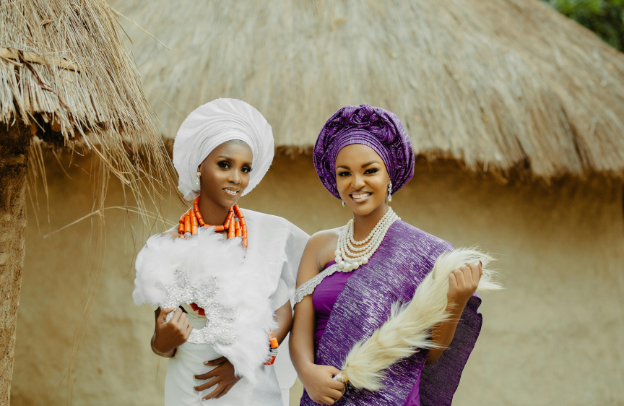African Diaspora Tourism: Cultural Reconnection and Economic Impact Through Community-Based Travel

When a group of African American educators stepped off the plane in Dakar, Senegal, they were not just beginning a sightseeing trip, they were answering a call. A call that reverberates from centuries of displacement, longing, and cultural fragmentation. They had signed up for a group heritage tour, yes, but they were also stepping into a living dialogue between the African continent and its far-flung children.
Learn How to Leverage Your Story through our Story To Asset Framework.
What they discovered over the following ten days was not only a series of historical landmarks and cultural festivities; it was a profound, collaborative experience with local communities that reshaped their sense of identity and purpose.
This is the evolving story of group travel as more than leisure; it is a strategy for cultural reclamation, economic development, and grassroots diplomacy.
As more African diaspora communities look beyond solitary ancestry trips to coordinated, community-based travel, a new movement is emerging: one that seeks to foster active collaboration between diasporans and local African populations.
That is why we developed Project DMTE: The Diaspora Memorial & Tourism Exchange, not just a travel initiative, but a powerful cultural experience. Created by WeDiasporan, DMTE offers a unique opportunity to reconnect African diasporans with the heart of their heritage.
This shift is not only enriching individual travelers, but it’s also fueling a renaissance of connection, memory-building, and mutual empowerment.
See also The Role of Group Tourism in Preserving and Promoting African Diaspora Culture
The New Face of Diaspora Tourism
Group travel for the African diaspora has expanded rapidly since landmark initiatives like Ghana’s Year of Return in 2019, which welcomed over one million visitors, many of them from the United States, Canada, and the Caribbean. The Ghana Tourism Authority reported over $1.9 billion in travel revenue that year, much of it driven by diaspora visitors.
But the deeper success of such programs lies not in numbers but in the new relationships they inspire. More travelers are now seeking structured group tours that not only retrace history but build new futures with the communities they encounter. These tours often include site visits to schools, cultural centers, and local farms where diasporans and locals share meals, music, and collaborative workshops.
This reflects a growing philosophy in diaspora travel: that heritage journeys should be rooted in exchange, not just observation. According to Dr. Glenn S. Gilbert, an African diaspora scholar, “Reconnection is no longer a passive activity. It is participatory, reflective, and driven by reciprocity. The bridge is built when both sides contribute something meaningful.”
Shared Memory as a Foundation for Collaboration
The idea of memory as a collective project is not new. But in the context of African diaspora travel, it takes on renewed significance. Memory is being actively reconstructed, not just through monuments or museums but through living relationships between diaspora travelers and African hosts.
In his widely cited paper on cultural memory, Jan Assmann distinguishes between communicative and cultural memory, where the latter is stored in rituals, traditions, and social institutions.
Group travel creates precisely these conditions for memory transmission. For example, the historic slave dungeons of Elmina and Cape Coast in Ghana have become sacred spaces where group travelers often participate in naming ceremonies, libations, and dialogues with local elders. These acts are not staged performances; they are exchanges of memory, grief, and resilience.
These memory-making strategies are often curated by diaspora-focused organizations such as The African Diaspora Alliance, which designs programs that center African and diasporan voices equally. Through activities like co-teaching oral history workshops or co-producing short films with local artists, travelers don’t just witness African life; they help co-create it.
See also Strengthening Diaspora-Local Relations: How Group Tours Encourage Cultural Exchange
Co-Creation and Economic Empowerment
One of the most tangible outcomes of group diaspora travel is the boost it provides to local economies. But beyond temporary spending, some tours are helping to seed long-term development initiatives.
In 2022, for instance, a cohort of diasporan business leaders from the UK and Canada visited Nigeria’s Anambra State as part of the African Diaspora Investment Symposium, where they were paired with local innovators to develop co-funded agricultural and tech projects.
According to the World Bank, African diaspora remittances reached $53 billion in 2022. Group travel presents an opportunity to channel some of that financial energy into more coordinated, community-directed projects. By traveling in organized groups with aligned missions; whether educational, entrepreneurial, or social justice-oriented, diasporans are better equipped to mobilize resources and forge lasting partnerships with local stakeholders.
These outcomes are especially impactful when the travel experience includes hands-on collaboration. For instance, group travel operator Birthright AFRICA includes educational exchanges, site-based service projects, and collaborative ventures into its itineraries.
Participants have worked side-by-side with local artists, educators, and entrepreneurs, often continuing their partnerships after returning home.
Group Dynamics Foster Collective Identity
Traveling in a group, especially one curated around shared heritage, offers a rare opportunity to forge collective identity across national boundaries. For African diaspora travelers, this often means unpacking the layered dynamics of race, colonial history, and cultural survival with peers who share similar yet distinct perspectives.
“When we stood together at the Door of No Return, I felt this surge of collective remembrance,” said Dorianne Johnson, a Jamaican-American educator who traveled to Benin in a group tour. “But it wasn’t just mourning. It was also about reclaiming. Reclaiming what was lost, yes, but also imagining what we could build together now.”
These powerful group experiences often lead to transnational networks that continue beyond the duration of the tour. Participants form WhatsApp groups, co-found nonprofits, or return for subsequent visits with new skills and ideas. In this way, group travel becomes not just a mode of travel but a long-term organizing tool.
Mutual Learning and Language Exchange
One often-overlooked aspect of group travel is its power to facilitate mutual education. Many group programs now incorporate language immersion sessions, storytelling circles, and local history lessons led by indigenous scholars or community elders. Conversely, diasporans may offer workshops in media production, business development, or creative writing.
These forms of learning don’t just empower individuals; they help build mutual respect. As noted in a UNESCO report on cultural travel, respectful cross-cultural engagement enhances social cohesion and helps preserve local heritage under community terms, rather than external commodification.
This balance is crucial. The goal is not to “rescue” or “modernize” African communities, nor to romanticize them. It is to participate in mutual transformation where diasporans and locals recognize each other as co-creators of a shared cultural future.
Building Sustainable Models of Engagement
The sustainability of group diaspora travel hinges on ethical curation and inclusive planning. It requires rejecting the top-down models of traditional travel in favor of horizontal, community-first partnerships. Fortunately, more organizations are responding to this need.
In Nigeria, the Lagos-based nonprofit curates group visits with a focus on ethical storytelling, local ownership, and youth mentorship. Founder Tosin Adebisi explains: “We want to move beyond heritage safaris. Our goal is to create infrastructure for relationships, diaspora relationships with the continent that are built to last and built to empower.”
Likewise, tour companies such as Sankofa Venture have designed Afro-centric journeys that include pre-travel education, post-travel networking, and opportunities to return as contributors, not just consumers. These models underscore the principle that the journey doesn’t end when the trip does.
You might also like Shaping a Collaborative Vision for Future Generations through the Role of Group Tourism
Toward a New Pan-Africanism
Ultimately, group travel among the African diaspora is about more than reconnection, it is a path toward re-imagination. It invites diasporans and locals to see themselves not as separated by oceans and empires, but as integral nodes in a web of shared ancestry, struggle, and potential.
This is Pan-Africanism not as ideology, but as practice. Every group journey becomes a small act of solidarity, a living archive of memory, and a rehearsal for what true cultural unity might look like.
As global challenges, from climate change to social injustice; demand more collaborative thinking, these bridges between Diasporas and African communities offer a blueprint. They show that we can remember together, build together, and move forward together.
Because in the end, when people gather not just to look, but to listen, share, and co-create; they do more than travel. They transform.
Learn How to Leverage Your Story through our Story To Asset Framework.





